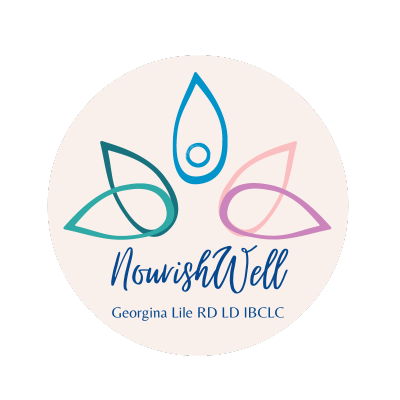Nourish Your Microbes for a Healthier Mind and Body
Photo by TLFurrer/iStock / Getty Images
There are trillions of microbes living within our bodies that together make up what is called our microbiome. These are microorganisms that include bacteria, fungi and viruses with most of them residing in our gut. We have a mutually beneficial relationship with some which we call our “good” bacteria. We feed our good bacteria with our undigested food and in return, they produce vitamins, help with production of neurotransmitters like serotonin, regulate the immune system and participate in a wide range of body functions. The microbes that live in our gut are getting a lot of attention lately as we learn more of their influence on brain function and role in neurological disease. Studies show that almost every health function is in some way linked to the bacteria composition of your gut. Your microbiome plays an important role in immune system, brain function, mood, body composition, obesity, heart disease, diabetes, certain cancers and the list goes on.
If you have gut issues including IBS, reflux, excessive gas, frequent diarrhea or constipation, it is likely that your microbiome composition is out of balance. This is called dysbiosis, when there are more bad then good microorganisms in your gut. It is critically important that whatever steps are taken to treat gut issues that repair of the microbiome is included. Disruptions in the microbiome are associated with inflammation and inflammation is both the cause and effect of illness. People with dysbiosis are ill more often and more likely to experience migraines, fatigue, food sensitivities, weight gain, depression anxiety, attention deficit, metabolic syndrome, insulin resistance and auto-immune illnesses.
What disrupts a healthy microbiome?
Antibiotics are essential for many illnesses, but the downside is that it kills off the beneficial microbes as well as the targeted microbes. Farm animals are routinely administered antibiotics in their feed and then passed along to us when we eat them.
Processed foods change the microbiome composition and pull them deeper into the lining of the gut. Emulsifiers like PS80 and CMC are used to increase shelf life of processed foods. In animal studies, these changes were associated with an increase in obesity and metabolic syndrome. Refined grains and sugars used in processed snacks feed and promote the overgrowth of candida yeast as well as less desirable bacteria.
Diets high in meat and low in fiber are associated with poor bacterial composition. Bacteria produce molecules after digesting meats that are associated with inflammation, and higher risk of heart disease and cancers.
Proton pump inhibitors lower the acidity in the gut and decrease chance of survival of many beneficial bacteria. The microorganisms most likely to survive the low acid environment tend to be the more virulent pathogens that we don’t want taking over the gut.
Bacterial composition changes in response to high levels of stress. Stress can change the acidity of the stomach.
Chronic alcohol consumption decreases stomach acidity causing potentially harmful microorganisms to populate the upper small intestine.
Our guts are primed as infants with good bacteria from the birth canal and breastfeeding. Infants born by cesarean section and formula fed infants have significantly different bacterial compositions. That is because mother’s body prepares the birth canal with an optimal composition of microorganisms during pregnancy and the baby is inoculated as they pass through the birth canal.
How can we increase beneficial microbes and thereby improve our health?
Increase fiber rich fruits and vegetables in your diet. Studies have shown that bacteria digesting fiber from vegetables actually produce molecules associated with lower cholesterol, body fat and cancer risk.
Consume fermented foods. Fermented foods contain live, active beneficial bacteria. Fermented foods like kefir, yogurt, buttermilk, kimchi , tempeh, pickles, apple cider vinegar and kombucha contain live, active cultures of bacteria.
Consume probiotic supplements. Probiotics are beneficial bacteria packaged as oral supplements. There are a number of well studied strains of bacteria available over the counter. Adding daily probiotic supplements will help diversify and repopulate your gut with healthy bacteria. Probiotics come in pill, liquid, live and dead form. Some are much more effective than others, but most will have at least some effect. Some will take longer to effect change based on the way they are packaged. The most effective will be live, refrigerated varieties in pill form with an enteric coating. Enteric coating is essential to make sure healthy bacteria are not killed off in the gut. There are some strains that are known to be especially healing for a compromised gut. Message me if you would like to discuss specific strains that may be most helpful for you.
New research on microbes is emerging daily. What is becoming increasingly evident is that the health of our microbes is essential to almost every health function of the body and we must take good care of it. Diet is critical to helping your microbiome flourish with healthy bacteria. If you are suffering from adverse G.I. symptoms, migraines, fatigue, food sensitivities, unexplained weight gain, depression, anxiety, attention deficit, metabolic syndrome, insulin resistance or auto-immune illnesses, it is worth it to address and correct your microbiome composition. If you would like a consult to discuss how to best nourish your microbiome for better overall health, please contact me at glile@nourishwell.online

